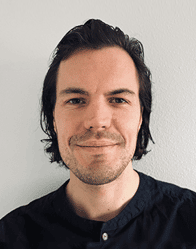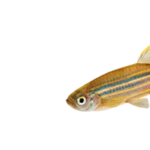Season 1 – Episode 12 – Ethical and Policy Issues for Xenotransplantation Clinical Trials
Karen Maschke, a Senior Research Scholar at The Hastings Center and editor of the journal Ethics & Human Research, discusses the ethical and policy considerations for xenotransplantation clinical trials.
Episode Transcript
Click to expand/collapse
Daniel Smith: Welcome to On Tech Ethics with CITI Program. Our guest today is Karen Maschke, who is a senior research scholar at the Hastings Center. Karen has a expertise on the ethical, regulatory and policy issues involving the development, assessment and use of new biomedical technologies.
Today, we are going to discuss ethical and policy considerations for xenotransplantation clinical trials. Before we get started, I want to quickly note that this podcast is for educational purposes only. It is not designed to provide legal advice or legal guidance. You should consult with your organization’s attorneys if you have questions or concerns about the relevant laws and regulations that may be discussed in this podcast.
In addition, the views expressed in this podcast are solely those of our guests. And on that note, welcome to the podcast, Karen.
Karen Maschke: Hi. Thank you, Daniel.
Daniel Smith: It’s a pleasure to have you. So, tell us more about yourself and what you currently focus on at the Hastings Center.
Karen Maschke: Sure. As you said, I’m a senior research scholar and I’m also the editor of the Center’s journal, Ethics & Human Research.
The Hastings Center is a bioethics research institute. It’s a little over 50 years old and we’re located north of New York City. And we do lots of work on the ethics of healthcare, medicine, science, and technology. I’ve done a lot of work over the years on various issues but right now, my main project is on a research project that examines the ethical and policy challenges of xenotransplantation. It’s a project that’s funded by the National Center for Advancing Translational Sciences, which is an institute of the National Institutes of Health. And I should point out that I have two co-investigators on this project, Michael Gusmano at Lehigh University and the Hastings Center, and Elisa Gordon at Vanderbilt University Medical Center.
Daniel Smith: Thank you, Karen. So, can you tell us more about what xenotransplantation is?
Karen Maschke: Sure. Very simply, it’s the transplantation of live cells, tissues, or organs from non-human animals into humans. Scientists have been trying to transplant animal organs, cells and tissues into humans for a long time, and in the late ’90s in the United States, they transplanted organs from non-human primates into humans in a handful of studies. That stopped for various reasons, and over the past 20 years, scientists shifted to conducting research with pigs, and transplanting their organs into non-human primates to see whether they worked, and drew that data as a way to decide whether or not they thought this could work in humans.
Right now, where we are with xenotransplantation is the potential for using pig organs from genetically modified pigs, pigs that have been modified in ways to help the human body not reject the organ, and also putting some human genes into the pig to facilitate the successful transplant of the organ.
Daniel Smith: It’s interesting. So, why is there a need for an alternative to human organs and this move to using pig organs in some cases?
Karen Maschke: Well, there’s never been enough human organs to go around for all the people who need them, and that’s been a longstanding problem, even back in the 1990s when scientists were looking at possibly using organs from non-human primate.
There are currently about 106,000 people on what’s called the national transplant wait list. That number changes all the time because some people get access to the organ who are on the list and many people die and many more people are added to the list. I do want to make a quick point though that not everyone who needs an organ gets on the national transplant wait list. It’s a wait list that’s managed and regulated under federal policy and law, but unfortunately we don’t have good data about who needs an organ, but who doesn’t get on the wait list. The wait lists are at transplant centers and there’s a really detailed and elaborate sort of evaluation process that patients have to go through with regard to whether or not they can get on the list.
And so not everybody gets on the list, and a lot of people don’t even really know about that process and how to get to it or get through it. What we do know is that approximately 17 people every day die who are on the wait list, and again, that number varies from day to day. And about every 10 minutes, another person is added to the wait list.
I also want to make another quick point because it has real implications for transplant clinical trials. About 87% of the people on the wait list need a kidney. I always point this out because I know it’s important to acknowledge that people need hearts and lungs and pancreas and livers, but the media often talks about the need for an organ when the reality is that the largest and greatest need is for the kidney, and that’s why a lot of the research over the last 20 years has gone into developing genetically modified pigs that might be good donors for kidney patients.
Daniel Smith: To talk about a specific case some more, just a few weeks ago it was announced that surgeons transplanted a pig’s heart into a person who was dying from heart failure in an attempt to prolong their life. So, what do you know about this case and what might it mean for the future of xenotransplants?
Karen Maschke: Well, it’s one of two cases and it’s the most recent, and it’s an important case for a couple of reasons.
So, the first thing is that this was not a clinical trial, it’s called a compassionate use case. I’ll give a little bit of background on that. So the US Food and Drug Administration, which regulates the entry of drugs into the market and the clinic also regulates xenotransplantation. Because the FDA considers animal organs, cells or tissues to be a biological product, and therefore they’re in the same category of the drug development and approval process as drugs and vaccines are.
The people who are the companies that develop these pig herds have to get FDA approval to conduct clinical trials. The heart transplant that you mentioned that happened a few weeks ago was approved by the FDA under its expanded access compassionate use pathway for a single patient. So this is a pathway in which physicians can go to the FDA and ask for approval to use an experimental medical product under the claim that it’s the only actual available for that single patient who’s facing a serious or life-threatening medical condition.
So the University of Maryland Medical Center went to the FDA and said that they had a patient who was reported in the media as a man named Lawrence Faucette, who is facing certain death from end stage heart disease. And several transplant hospitals, including the University of Maryland Medical Center, had denied him access to the wait list because he had a preexisting condition and complications from bleeding that disqualified him from being on that wait list. It was the second pig heart transplant conducted at the University of Maryland Medical Center. The first one was also conducted under the FDA approved compassionate use pathway.
These are important transplants because they provide the first window of information about what a pig heart will do in a human body. So the data that comes from this in terms of whether the heart worked, did it function the same way that a human heart would function in a human, other kinds of markers that the transplant team looks for that are very critical to make determinations about whether that heart is going to work is very important data. Nonetheless, we really need formal clinical trials to enroll patients who all meet specific criteria for a clinical trial to get valid and reliable data about the safety and effectiveness of a pig organ.
A handful of compassionate use cases with patients who have different kinds of medical pictures or medical portfolios is not going to provide the kind of really systematic data that we need that we get from clinical trials.
Daniel Smith: Certainly. So in this specific case, I know it was initially successful. Do they have any kind of preliminary data that has come out of this case?
Karen Maschke: I haven’t seen anything. There was an update about a week ago that the transplant recipient was doing well. But I check regularly because it’s a part of the project to monitor anything that’s going on, but I haven’t seen anything yet.
When the first transplant occurred, the patient did die after about 40 days. I think it may not be the right date, but data came out of that early on. But it wasn’t for several months until data were published in the scientific literature and the most recent report came out in June 2023, over a year after it happened. So it takes a while for the team to evaluate all the data, because there really is a lot they need to look at in terms of all kinds of biochemical and cardiovascular functions that they need to examine.
Daniel Smith: Absolutely. So as you mentioned, the most recent one was just one specific case, and then there’s another case in the past, and there’s still a lot to be learned about the safety and efficacy of these types of transplants. So are there currently any clinical trials involving xenotransplants?
Karen Maschke: There are not. However, I am aware of the fact that several transplant teams are planning to conduct a clinical trial. I know of at least two that want to conduct a pig kidney, a transplant trial, and I do know that the University of Maryland Medical Center wants to conduct a pig heart transplant trial. There may be others out there. Where they are in that process of applying to the FDA for approval, I don’t know. That’s all proprietary information, and the FDA does not release that information, nor do the teams or developers ever release information when they’ve formally applied to the FDA. The only way we’ll know is when the FDA approves and the transplant teams will then they will announce formally that they’re setting up a clinical trial.
Daniel Smith: I want to take a quick break and tell you about some of CITA program’s newest offerings that explore topics across professional areas. You may be interested in our new survey research course, which provides a comprehensive overview of survey research, design, implementation, analysis, and ethical considerations. In addition, I encourage you to check out our growing library of webinar offerings, which addresses a range of topics on animal care and use, bioethics, human subjects research, technology ethics and more. And with that, let’s get back to the conversation with Karen.
So when it comes to these future xenotransplant trials, what are some of the ethical issues that will need to be considered?
Karen Maschke: Well, there are a host of them, many of which we’re examining on our project, and others as well. We’re not the only ones who are examining this. There’s been a longstanding discussion in the academic literature for 20 or 30 years about xenotransplantation in terms of the science, but also some of the ethics.
So one of the first things is of course the use of animals, and there are many people in the United States who do not believe that animals should be used in research and should be used for any medical purposes, but particularly in research. And that’s an important issue that the developers and the teams are aware of. It is important to note that animals are regulated. Their use and research is regulated by the US government, and there are animal use oversight committees at all institutions that conduct animal research.
It’s also important to note that animal tissues and cells are used in humans in various ways. Heart valves often come from animals to help human patients when they have heart valve problems. I believe that the new product that was just released recently, a pig skin for what’s called graft bridging after major burns until the body can heal enough for that, the surgeons to then use human skin. So it’s not that animals haven’t been used to help medical research, but of course it’s important to acknowledge that many people do object to this for various kinds of reasons.
The other issue comes up with regard to early phase clinical trials. The first trials will really be safety trials and it will be a few patients at the centers that conduct the trials. But one of the issues with all early phase trials is we have the tension of wanting to enroll patients who need access to something they can’t get otherwise. They’re typically very ill. And there are always concerns about the therapeutic misconception. Do patients really understand that these early trials are really to test the safety of the intervention? It’s great if it works for that patient, but the expectation in an early trial is that the real issue is to see whether or not it’s safe.
There are also issues about eligibility criteria. I hinted at this a little bit when I talked about the compassionate use approach. In a clinical trial, you have very strict eligibility criteria and very strict ineligibility criteria, and that’s so that the data that we collect from these studies have a population of people who are very similar.
You’re trying to get rid of some of what are called the noise, basically the confounding factors. And there are some real important issues that are being debated about the eligibility criteria. Should patients be very, very sick and have no other options? If those are the patients that are enrolled and the experiments don’t work, was it because they were very sick or was it because there was a problem with the organ or the body wasn’t accepting the organ, or do you want patients who are on the transplant wait list?
In the kidney context, patients can be on the transplant wait list for many years before they get a kidney. Many of those patients will be on dialysis. And although dialysis is not something that people like and it has its own problems in terms of the health of the patient, they can survive for many years.
If only patients who are on the wait list get access to an organ in this context, that would most likely be a kidney. What does that mean for people who can’t get on the wait list for various reasons? They’re being shut out of access to this potentially beneficial organ in a clinical trial? That’s a concern.
And the wait list issue is also of concern because there are racial disparities in terms of who actually gets on the wait list. There’s a growing literature that shows some of those disparities and raises some concerns about the fact that African-American kidney patients and heart patients as well are not perhaps getting the kind of information they need to be evaluated for the wait list. They may have socioeconomic background characteristics, which put them at a disadvantage for being on the wait list. So you have those concerns.
You also have concerns about children versus adults. In research ethics for first in human clinical trials, the ethical standard tends to be that adults should go first, because those are safety trials and you want to find out information first an adults before you give an experimental intervention to children.
On the other hand, in the heart context, there are some folks who are making the case that for heart clinical trials, there really needs to be some serious consideration given to having clinical trials with children. Because children with various congenital heart diseases are at a disadvantage for getting hearts because their hearts are so small and there aren’t that many that are available. So that discussion has also been going on in terms of the ethics of children in these trials.
Daniel Smith: Now, I know you and your colleagues are working on creating some resources to help folks navigate these issues. But before we get to that, I just wanted to ask, are there other issues such as governance issues that need to be addressed before xenotransplantation becomes a more common practice?
Karen Maschke: That’s a great question. Our project is on human clinical trials, but we found out really early on as we were writing the proposal and even once we started, that the clinical trial process butts up against the clinical setting. And the human transplant clinical setting is governed by the United Network for Organ Sharing, which is actually up for renewal in terms of its contract, but it’s governed by the federal government’s policies and regulations and statutes.
And that system, our national system of getting on the wait list and the national system for allocation when organs become available, is a system that is solely about human organs. So it raises some interesting questions about the use of animal organs. If in fact these trials will eventually happen, suggest that animal organs are a viable, safe and effective alternative to human organs. Because there is no governing model right now, there’s no governance system in place for the use of animal organs.
Animal organs like drugs will be a medical product that will be a commercial product sold on the market. So that raises some interesting questions about patients who, let’s say these clinical trials go forward, let’s say the FDA approves pig kidneys for use in the clinic as a medical product. What does that mean for patients now who are on the national human organ wait list who want to get access to pig kidney in the clinic and they decide to go that route and the pig kidney doesn’t work? Can they get back on the human organ wait list? Do they have to get off of it when they got a human kidney? Can’t they get higher up on the list? It raises all kinds of interesting questions that nobody really has answers to yet, because this is also new and will have to really be addressed.
There are also lots of cost issues. Who’s going to pay for the kidneys? Are going to be affordable for patients? Will health insurers, both employer-based commercial health insurers, Medicare, Medicaid, and the Veterans Affairs government programs, will they pay for the kidney? Will they pay for the transplant expenses and other expenses that accrue from transplantation? Will there be equitable access to the pig organs, particularly in the case of cost? So for people who don’t have health insurance or underinsured, will they be able to get access to this medical product in the clinical setting.
These are all important issues that people are just now starting to realize really need to be addressed. I believe they will be, but it’s going to take some time to figure this out.
Daniel Smith: And so currently, are there any resources available to help transplant candidates and scientists and clinicians and policymakers and others navigate these issues?
Karen Maschke: Well, there’s some things going on. I’ve been involved in a couple of NIH workshops that have involved. Research ethics folks like myself, transplant ethics folks, FDA officials have been there, officials from various NIH institutes that are interested in transplantation and some of which have funded the preclinical research. There were patient advocates at these meetings. And there are other meetings that are going on with transplant centers and other professional organizations that are looking at these. They’re talking to each other. They’re identifying the key policy and ethical and scientific issues, and they’re writing about that in the literature.
For our project, we actually will be developing resources and they will be coming out of the data that we get from the interviews that we’ve conducted with transplant surgeons, nephrologists, other clinicians. We interviewed kidney transplant patients at two academic medical centers. We interviewed health policy and cost experts and insurer experts. We interviewed chairs of institutional review boards, and we interviewed research ethics experts. The findings from those interviews will inform the development of a decision aid for patients who may be recruited to enroll in a xenotransplant trial.
We’re developing case studies or case scenarios for transplant surgeons and clinicians on various ethical issues for xenotransplantation. We’re developing a resource checklist or might call it a decision aid for IRB members to have at their disposal when and if transplant clinical trials are presented at their institution and they’re reviewing protocols. And then at the end of the project, we’ll be making some recommendations for guidance on these kinds of ethical issues that we’ve discussed.
Daniel Smith: That’s wonderful, and I’ll certainly include a link to the Hastings Center website where our listeners can learn more about this project. And then over time, will these resources be available to the public?
Karen Maschke: We’ll make them available on our website. The Hastings Center website has a webpage on the xenotransplant project. All of our projects have a project page. We’ve already posted the link to the interviews that I and my other colleagues have been conducting with the media. We’ll be posting some posters that we presented at the American Transplant Congress last year. And then we’re starting our third year of a four-year project, so we’re just now starting to get some things out. So when things come out, we will be posting them on that webpage.
Daniel Smith: Wonderful. So do you have any final thoughts you would like to share that we did not already touch on?
Karen Maschke: I think just the general thought is that xenotransplant clinical trials, they’re not unique in one sense in terms of other first inhuman or early phase clinical trials, but they are unique because of the product. We’ve never conducted formal clinical trials in this way with organs from animals.
And it will be interesting to see how the science developed and whether this actually proves to be safe and effective. But I think, as I said, the larger national policy issue that does have ethical implications for access to this new innovation if it does work, really has to be addressed. I know that research teams, professional organizations and several patient advocacy organizations are really starting to talk and think about how this medical technology can get diffused in the clinic in a way that is safe and effective but also equitable for people who need access to it.
Daniel Smith: And that is all for our conversation today. So thank you again, Karen.
Karen Maschke: Thank you, Daniel.
Daniel Smith: And I also invite everyone to visit www.citiprogram.org to learn more about our courses and webinars on research ethics and compliance. You may be interested in our Technology, Ethics, and Regulations course, which discusses the ethical issues and governance approaches associated with various technologies such as human animal chimeras and genome editing. And with that, I look forward to bringing you all more conversations on all things tech ethics.
How to Listen and Subscribe to the Podcast
You can find On Tech Ethics with CITI Program available from several of the most popular podcast services. Subscribe on your favorite platform to receive updates when episodes are newly released. You can also subscribe to this podcast, by pasting “https://feeds.buzzsprout.com/2120643.rss” into your your podcast apps.
Recent Episodes
- Season 1 – Episode 11: Technological and Safety Considerations for Autonomous Vehicles
- Season 1 – Episode 10: Human Subjects Research Ethics in Space
- Season 1 – Episode 9: Impact of Recent Social Media Platform Changes
- Season 1 – Episode 8: Understanding Big Health Data Research’s Unique Issues
Meet the Guest
Karen Maschke, PhD – The Hastings Center
Karen J. Maschke, PhD is a Research Scholar at The Hastings Center and the editor of the Center’s journal Ethics & Human Research. Her work focuses on ethical, regulatory, and policy issues associated with the development and use of new biotechnologies.
Meet the Host

Daniel Smith, Associate Director of Content and Education and Host of On Tech Ethics Podcast – CITI Program
As Associate Director of Content and Education at CITI Program, Daniel focuses on developing educational content in areas such as the responsible use of technologies, humane care and use of animals, and environmental health and safety. He received a BA in journalism and technical communication from Colorado State University.










